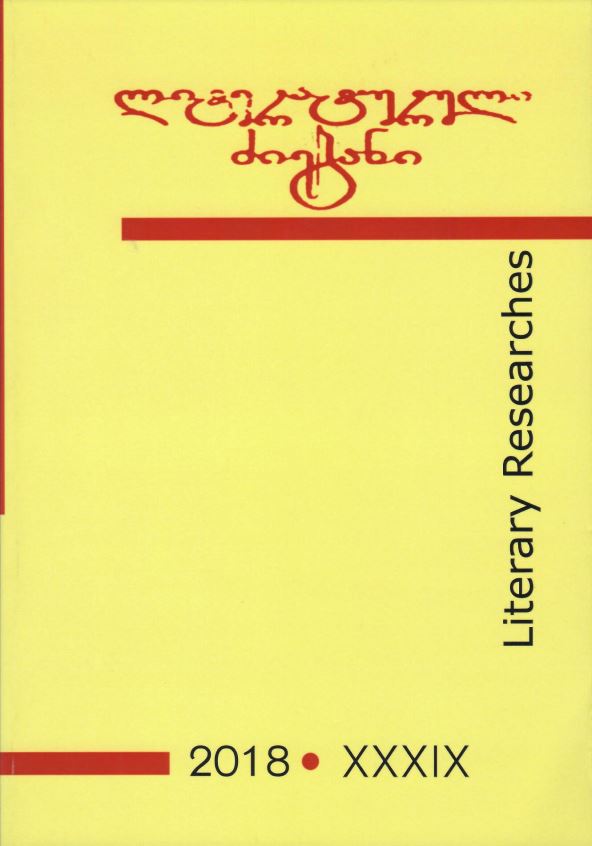On Transformation of the Function of Messenger from Homer to the Classic Tragedy (Aeschylus, Sophocles)
Published 2018-12-20
Keywords
- The Function of Messenger,
- Homer,
- Aeschylus,
- Sophocles
How to Cite
Abstract
In the society of antique epoch, where dominant attention is paid to verbal conveyance of information, messengers and heralds, naturally, occupy a significant place. While the antique world played a decisive role for the European civilization in formation and development of information dissemination, for the antique world Homer is considered as the main inspirer in this area, like in many other areas. The institute of messengers and heralds underwent a very interesting transformation in the Greek drama. What did the classical drama receive from epos of Homer and what type of transformation can we discuss? First of all, we should mention that the theater reflected the phenomenon of messenger with peculiarities common for the theater where characters left without speech could not find their place, including so-called speechless professional heralds and where the scenic space of action of messengers was rather limited. Bringing the episodes of transfer or dissemination of information at the stage in such form as was presented in Homer’s works without speech would lose sense.
In tragedies, in most cases heralds and mortal messengers became narrators of those tragic events that happened beyond the stage and which are culminating in the development of “tragic” conflict development. They turned into main characters of the so-called literary theater. Accordingly, their speech is long and emotional because they have a function to describe as dramatically as possible what should make an effect of tragic catharsis. So there is more creative initiative of narrators in tragedies. In our opinion, their rather intensive engagement in the antique dramatic pieces of work is predetermined by one essential peculiarity of the Greek drama: correlation of speech and scenes reflecting the action. We imply that as a rule, tragedy offers the most tragic moment at the stage not by action at the stage but by speech. Therefore, we can mention that a herald became an autonomous figure which should convey a dramatic story. Expressing words of significant information full of oratorical pathos in Iliad and Odyssey mainly represents the priority of main characters while messengers are described as deliverers of speech describing the horrible stories in the tragedy in detail. In order to make this more clear, we will review in the article the function assigned to messengers and heralds in the tragedies of Aeschylus and Sophocles.

